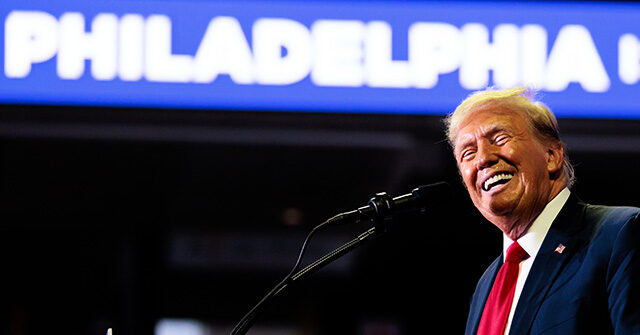In Philadelphia, a city traditionally known for its strong Democratic leanings, there are signs that working-class voters are shifting their support toward former President Donald Trump’s Republican Party. Voters like Gabriel Lopez, who once supported Hillary Clinton, express a growing displeasure with Democratic leadership, citing economic concerns and rising prices as key factors in their changing political allegiances. Lopez highlights the contrast between Trump’s presidency, which he believes resulted in lower taxes and better economic conditions, versus the current administration’s handling of the economy. Lopez’s sentiments reflect a broader trend among Philadelphia’s working-class demographic, where dissatisfaction with the state of affairs under Democratic leadership is prompting a reconsideration of political loyalty.
The political landscape appears to be undergoing a significant realignment, particularly noticeable in Philadelphia, where Democrats outnumber Republicans by a significant margin of 7-to-1. Previously, the Republican Party was perceived as representing big business interests, but under Trump’s leadership, it has cultivated a connection with working-class individuals by emphasizing policies that focus on tariffs and border security. These strategies have resonated especially in the Rust Belt states, where voters feel abandoned as manufacturing jobs have dwindled due to globalization. The issues of soaring costs, low wages, and a perceived indifference on the part of Democrats are driving many former staunch supporters away from the party, with more individuals within the working class reassessing their political identities.
Recent polling indicates that the identification of non-white voters with the Democratic Party has declined to its lowest level since the 1960s, signaling a significant shift in the political base once considered reliable for Democrats. Analysts note that the 2020 election marked the first time the wealthiest third of voters leaned Democratic while the Republicans attracted a more significant share from poorer demographics. This realignment suggests that the GOP is successfully appealing to a diverse range of working- and middle-class voters. Lifelong Democrats, like retired truck driver Jim Kohn from South Philly, demonstrate this shift, expressing their intent to vote for Trump based on economic issues and price inflation that they blame on current Democratic policies.
Republican leaders in Philadelphia have observed this trend and predict better performance for their party in forthcoming elections in comparison to the 2020 results. Notably, the Republican Party has gained more registered voters in Philadelphia since 2023, surpassing Democratic registrations for the first time in many years. Charlie O’Connor, a Republican figure in the area, notes that the historical voting landscape has flipped. The managerial class, which once predominantly supported Republican candidates, has transitioned toward the Democratic Party, while many working-class individuals now feel disillusioned with the Democrats and are open to supporting Trump and his platform.
The shifting dynamics highlight a fundamental question among voters: Are they better off than they were four years ago? This inquiry resonates across demographic lines, and many respondents are answering negatively when reflecting on their current economic circumstances. The stark comparison between past economic conditions under Trump and the present scenario under the current administration serves as a rallying point for disaffected voters. O’Connor emphasizes that the universal message for voters hinges on their actual experience of economic health, which is key to understanding the realignment of political affiliations in the city.
In summary, the emerging trend of working-class voters in Philadelphia gravitating toward the Republican Party underscores a more extensive political realignment driven by economic dissatisfaction. As frustrations regarding rising costs and stagnant wages mount, many once-reliable Democratic voters, including individuals from diverse racial and ethnic backgrounds, are reassessing their political loyalty. The evolving relationship between socioeconomic factors and political affiliation suggests that the Republican Party’s messaging, centered on economic prospects and direct appeals to working-class issues, may play a critical role in shaping future electoral outcomes in traditionally Democratic strongholds like Philadelphia.

